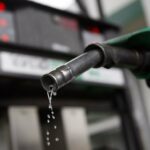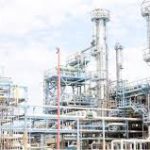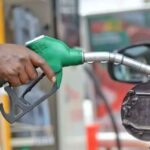There are indications of an imminent hike in the price of petrol as the Nigerian National Petroleum Company Limited (NNPCL) has admitted financial strain.
Government officials have in the past two weeks been hinting that with the fluctuating exchange rate of the Naira against the dollar, it may not be possible to sustain the current official price of N617 per litre for petrol.
Since the past few weeks, long queues have resurfaced at most filling stations belonging to independent marketers in Abuja, Lagos and several other states across the country, where the product is being sold around N720 per litre, with many outlets dispensing the petro for as much as N1,000 per litre.
The price of petrol rose astronomically last year following the removal of subsidy on it by President Bola Ahmed Tinubu.
- 2yrs after UAE visa ban, portal opens as Emirates’ bookings resume
- #EndBadGovernance: Protesters for trial in Abuja, Kano, Kaduna, Borno today
After series of denials, the Federal Government had, on June 5, 2024, admitted paying subsidy on petrol.
The Minister of Finance and Coordinating Minister of the Economy, Wale Edun, in a draft report of the Accelerated Stabilisation and Advancement Plan (ASAP) presented to Tinubu, revealed that the estimated expenditure on fuel subsidy for 2024 was N5.4 trillion, which is about N1.8 trillion higher than the amount spent in 2023.
The looming pump price hike would be 4th within 15 months as information gathered from oil marketers suggest that the increase may be much sooner than being expected.
The NNPCL, which had repeatedly assured of sufficient reserve and urged against panic buying, yesterday acknowledged recent media reports about its significant debt to petrol suppliers.
Reuters had reported that Nigeria’s debt to petroleum products suppliers had surpassed $6 billion–doubling since early April this year–as the NNPCL struggles to cover the gap between fixed pump prices and international fuel costs.
The NNPCL’s Chief Corporate Communications Officer, Olufemi Soneye, in a statement issued yesterday, said the financial strain had placed considerable pressure on the company and posed a threat to the sustainability of fuel supply.
The statement said: “In line with the Petroleum Industry Act (PIA), NNPC Ltd remains dedicated to its role as the supplier of last resort, ensuring national energy security. We are actively collaborating with relevant government agencies and other stakeholders to maintain a consistent supply of petroleum products nationwide”.
The NNPCL had informed the Federation Account Allocation Committee (FAAC) of an outstanding of N4.56 trillion for selling petrol at a subsidised price between August 2023 and June 2024.
This is according to documents from FAAC meetings in July and August. According to a report from a FAAC Post-Mortem Sub-Committee (PMSC) meeting, the outstanding amount is said to be unrecovered funds arising from exchange rate differentials on petrol importation.
Announcement game plan to increase pump price- Analysts
Experts have, however, suggested that the announcement is part of a game plan from the government, which may lead to 950/1,000 per litre price for petrol.
They alleged that government officials had been pushing this narrative in the last two weeks.
The Minister of State for Petroleum, Heineken Lokpobiri, had, on Monday, asked the NNPCL to halt the sale of fuel below landing costs, arguing that this would help curb smuggling to neighbouring countries.
The Major Energy Marketers Association of Nigeria (MEMAN) recently disclosed that the landing cost of petrol as of July, 2024, was N1,117 per litre.
It also revealed the landing costs of AGO (Diesel) at N1,157 for a 20KT vessel and ATK at N1,217 for a 15KT vessel landing in Apapa, Lagos.
An independent oil marketer, who preferred anonymity, said: “It was almost inevitable for the pump price to not rise, as this is one of the outcomes of a fully deregulated market.
“The NNPCL remains the main importer, with private importation remaining limited. This situation is worsened by Nigeria’s declining crude oil output, which impacts the country’s capacity to import refined products. The Organisation of Petroleum Exporting Countries (OPEC) has noted the dwindling output of many nations, including Nigeria”, the marketer said.
A former chairman of the Independent Petroleum Marketers Association of Nigeria (IPMAN), Ejigbo Depot in Lagos, Mr Akin Akinade recently said: “Our members have no direct supply from NNPC. We buy from Third Party. We buy at DAPMAN Depot in Abule Ado.
“They sell to us N840, N850, and by the time you add transportation to that, there is no way our members would sell less than they are selling. If they bring down their price, we are also going to bring down our price. We are in business to make money”, he said.
In a chat with Daily Trust yesterday, Chief Executive Officer, 11 Plc (formerly Mobil Nigeria), Tunji Oyebanji said: “Selling below the cost, whether from import or local refineries, is not sustainable. If they sell at economic price, perhaps others can import, supply will improve, and the financial strain will not be on them alone.
“It’s either that or these supply disruptions will continue indefinitely. I am baffled why they have not been upfront about this since instead of denials”, he said.

 Join Daily Trust WhatsApp Community For Quick Access To News and Happenings Around You.
Join Daily Trust WhatsApp Community For Quick Access To News and Happenings Around You.


